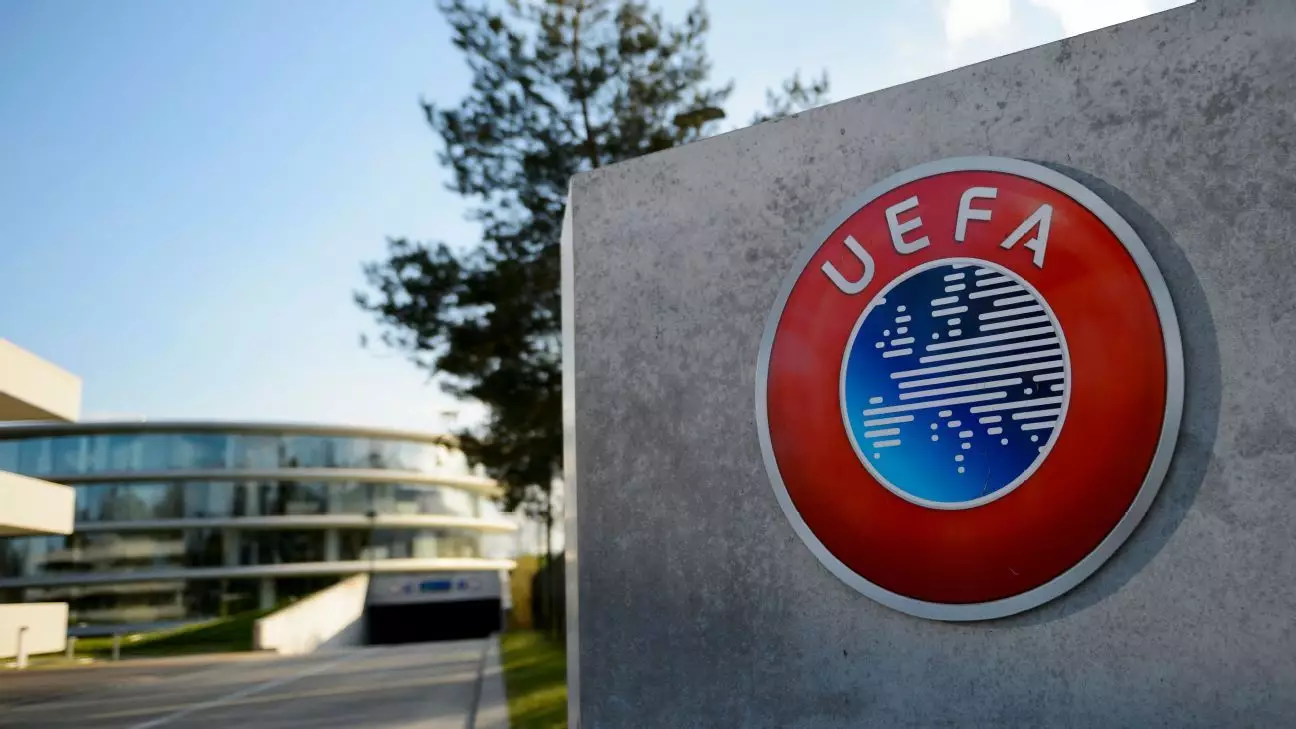In recent days, UEFA’s stringent financial monitoring has unmasked the often-overlooked turbulence beneath the glittering façade of Europe’s top football clubs. Chelsea and Barcelona, two of the continent’s most high-profile giants, found themselves embroiled in a costly saga of regulatory breaches, culminating in record-breaking fines that both shock and reveal the fragile financial equilibrium of modern football. These sanctions are not merely punitive measures; they serve as a stark reminder that the era of unchecked spending is coming under increased scrutiny. The underlying message is clear: wealth, no matter how immense, cannot be used as a shield against financial discipline in the long run.
Chelsea’s hefty €31 million penalty underscores a broader narrative of financial excess and regulatory missteps. Despite the club’s claims of strong financial recovery and transparency, UEFA’s findings highlight a stark discrepancy between spending and financial sustainability. The club’s lavish acquisitions in the transfer market, fueled by American ownership, have repeatedly pushed the boundaries of UEFA’s financial fair play (FFP) rules. The fines stem from multiple violations, including failure to reach the break-even target and spending more than 80% of revenue on wages and transfers. Such breaches not only jeopardize Chelsea’s current standing but threaten future participation in European competitions, rendering the fines a warning shot across the bow of one of England’s most ambitious clubs.
Barcelona’s €15 million penalty reveals a different yet equally concerning issue: structural financial mismanagement and excessive losses. Despite their storied history and global brand strength, the Catalan giants have struggled under the weight of questionable financial practices. UEFA’s evaluation — which considers losses and accounting irregularities — serves as a reminder that even clubs with immense fanbases and lucrative commercial deals are vulnerable when their financial models are unsustainable. This serves a dual purpose: urging clubs to prioritize stability over short-term glory, and emphasizing that failure to do so will come with tangible repercussions.
The Complex Web of Financial Oversight and Its Implications
UEFA’s strategies in policing club finances are more than mere enforcement; they are designed to foster long-term stability within the industry. By penalizing clubs for overspending and financial irregularities, UEFA aims to discourage reckless expenditure and promote responsible management. The sanctions imposed on Chelsea and Barcelona, along with others like Aston Villa and Lyon, highlight a tightening of oversight that leaves little room for loopholes. These measures challenge clubs to rethink their financial strategies, emphasizing sustainability rather than opportunistic spending that inflates their value temporarily.
Importantly, these fines also send a message to club owners across Europe: financial misconduct will be met with severe consequences. The case of Chelsea’s €76.5 million sale of hotel assets, now under scrutiny, exemplifies how clubs are increasingly being watched for complex financial transactions that could undermine compliance. Such scrutiny exposes the often opaque financial dealings that can mask underlying instability, serving as a rallying point for regulatory transparency.
Furthermore, these sanctions have broader industry implications. The historic fines—matching the record UEFA imposed on Manchester City and Paris Saint-Germain—highlight how even wealthy clubs have to remain within the bounds of financial discipline. Clubs that ignore these boundaries risk damaging their reputation, losing competitive licenses, and potentially, their place in Europe’s top competitions. In essence, the message from UEFA and other governing bodies is clear: the era of reckless spending without consequence is waning.
The Broader Reckoning: Wealth, Governance, and the Future of Football
This clampdown reveals the growing chasm between Europe’s wealthy football clubs and sustainable financial practices. The case of Chelsea and Barcelona is particularly instructive: it underscores a broader truth that perpetually increasing spending, even by those with considerable wealth, is unsustainable and ultimately self-destructive. With lucrative prospects like Champions League participation on the line, clubs cannot afford to ignore the rules indefinitely.
In many ways, UEFA’s penalties act as a catalyst for reform within football management. As these clubs adjust their strategies, the sport could become less about short-term trophies and more about long-term health. With significant consequences looming for those who drift from financial prudence, the game’s hierarchy might finally confront the excesses that have characterized recent decades. This represents a pivotal moment: a shift towards governance that prioritizes stability over spectacle, ensuring the longevity of clubs and leagues alike.
The ongoing investigation into clubs like Lyon and Aston Villa emphasizes that financial discipline is not only a matter for the giants but a fundamental requirement for all teams competing at the highest levels. The fines are just the beginning — the real challenge lies in reforming club practices and fostering a culture of responsible management that aligns with UEFA’s vision for a sustainable future.
Indeed, these revelations are a call to arms for club owners, fans, and governing bodies. The lavish spending splurges of the past decade may have dazzled supporters but often masked deeper financial vulnerabilities. As UEFA’s vigilance intensifies, football must decide whether it will adapt to a new era of transparency and discipline or fall prey to its own excesses. What remains certain is that the game’s financial landscape is undergoing a transformation, one that will shape its future for generations to come.


Leave a Reply